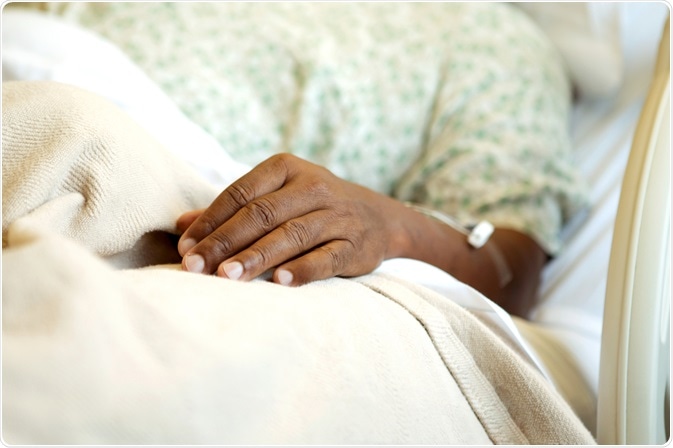African sleeping sickness (Human African Trypanosomiasis) is a tropical disease that is endemic in many areas of Sub-Saharan Africa, with a prevalence of around ~60 million people worldwide. In the acute phase, patients typically present with fever, headache, and joint pain. In the chronic disease, the infection manifests in other body areas, including the CNS, and affects the sleep cycle, hence the name.

pixelheadphoto digitalskillet | Shutterstock
African sleeping sickness is a serious disease that can cause meningoencephalitis, coma, or death. The condition is caused by two species of Trypanosoma brucei; Trypanosoma brucei rhodesiense (East African Sleeping Sickness) which causes a more acute illness (~2% cases), and Trypanosoma brucei gambiense (West and Central African sleeping sickness) which presents initially as intermittent fever or headache and slowly becomes a chronic disease (~98% cases).
The disease is mainly transmitted by tsetse flies that feed on human blood, but can also be acquired through mother-to-child (vertical) infection, mechanical transmission, accidental infections, and sexual transmission.
Symptoms of African Sleeping Sickness
Human African trypanosomiasis is a condition that, when left untreated, causes high morbidity. The earliest symptom of East African sleeping sickness is a local skin reaction called Trypanosomal chancre that appears about five days after being bitten by a tsetse fly. Regional lymphadenopathy may also be present.
First stage
The initial and most common manifestation of a generalized infection with Trypanosoma brucei is the occurrence of fever which comes and goes in a periodic cycle that is aligned with parasitic multiplication in the body. Other symptoms include headaches, muscle pain and joint ache.
In East African sleeping sickness, these clinical features appear within a few weeks of infection, and can also include lymphadenopathy. This type of sleeping sickness is more severe, and can result in myocardial dysfunction and death within a few weeks.
West African trypanosomiasis presents with less significant symptoms, including hepatosplenomegaly and rash, making early diagnosis more difficult.
Second stage
A few months after a person has been infected by West African Sleeping Sickness, the parasite begins to cross the blood-brain-barrier (BBB), and enter the central nervous system (CNS). At this stage, patients begin to experience mental and cognitive changes, caused by chronic encephalopathy. This typically manifests as the patient being unable to concentrate for long periods of time, along with a disrupted sleeping pattern.
Prognosis for patients with African Sleeping Sickness
In it's early stages, the symptoms of African Sleeping Sickness are no different from many other conditions, meaning some patients will go undiagnosed until they enter the chronic stage. As such, there are an estimated 50,000-500,000 deaths each year from this condition. As the acute phase occurs so rapidly, early detection is essential.
This disease is treatable if diagnosed within about two to three weeks after infection, before the parasite has reached the CNS. Almost all patients who get appropriate treatment within this period recover fully, except for an estimated 2.5% who will develop encephalopathy as a side effect of Stage 1 treatment.
Current studies into the prognosis of African sleeping sickness show that while treatment is still possible in the second stage, the survival rate is low. Mortality is also high in patients who remain untreated during the six months after infection, due to the crossing of the BBB by the parasite.
Records of patient mortality show that more than 80% of African sleeping sickness deaths occur because of minimal to no intervention for the condition.
Summary
Patients with African sleeping sickness may fully recover from the condition as long as appropriate treatment is provided early in the course of the illness. The lack of treatment opportunities for many patients suffering from the disease is the primary cause of continued high mortality and fatality rates.
Further Reading
Last Updated: Mar 13, 2023